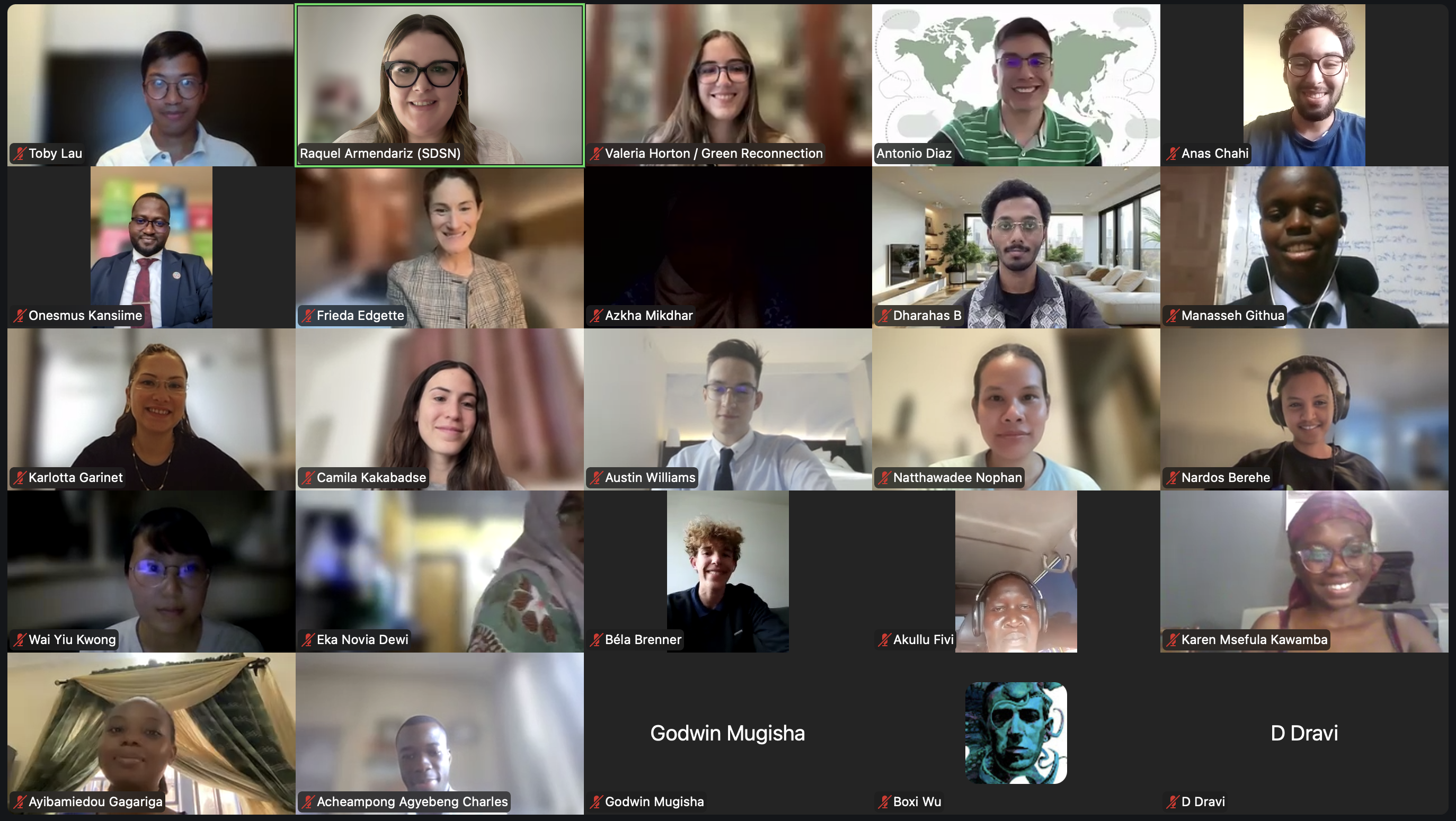
On September 23, the UN Sustainable Development Solutions Network’s Youth initiative (SDSN Youth) partnered with the SDGs Secretariat of the Office of the Prime Minister of Uganda to co-host an intergenerational dialogue as part of the #YouthLeadFestival, hosted by the United Nations Youth Office during the 80th Session of the UN General Assembly.
Moderated by Antonio Díaz Aranda, SDSN Youth’s Global Events & Partnerships Lead, this session brought together government representatives, youth innovators, and international negotiators to spotlight how young people are shaping global policy meaningfully.
Opening the discussion, Dr. Pascal Varugaba, Deputy Head of Uganda’s National SDG Secretariat, underscored the urgency of moving “beyond token consultations” to genuine youth-inclusive policymaking. Reflecting on the 30th anniversary of the World Programme of Action for Youth, he reminded participants: “The youth are not just leaders of tomorrow. They are partners for today.” His remarks framed the event as a moment to renew global commitments to embedding youth voices in governance at every level.
From Uganda’s perspective, Kansiime Onesmus, Senior Officer of Knowledge Management at the SDG Secretariat, explained how integrated coordination models ensure youth engagement. Underscoring the fact that over 70% of Uganda’s population is under 30, he described initiatives such as the Parish Development Model, which allocates 30% of parish funds to youth projects: “From the start, Uganda’s SDG coordination framework was designed as a whole-of-society approach to make sure SDGs are owned by all, including the young.”
From the Arab region, Azkha Mikdhar, founder of Aurora Impact, emphasized that policies must be built with youth, not just for them. She highlighted Jordan’s National Youth Strategy (2019–2025), where structured consultations directly shaped national priorities on skills, civic participation, and entrepreneurship: “The future should not be built for youth, it must be built with youth.”
.png)
Drawing on her experience as a former youth negotiator at the Conference of the Parties (COP), Valeria Horton identified timing as one of the most pressing barriers, especially when governments often finalize positions long before youth are invited to the table. She warned of “youth washing” in global forums and urged young leaders to present concrete text proposals, not just opinions: “If youth arrive at negotiations only at the end, it’s too late to influence outcomes.”
Finally, Toby Fung Lau, SDSN Youth Hong Kong Network Coordinator, reflected on the importance of bridging academia, civil society, and government. He shared how inclusive policymaking requires open-mindedness and long-term thinking: “We must focus not only on short-term fixes but on good economics that balance the needs of all stakeholders.” His example of navigating accessibility challenges in community policy illustrated the value of co-creation.
Across regions and sectors, a clear message emerged: youth must have institutionalized roles in decision-making, not symbolic participation. From Uganda’s local models to regional youth councils and global negotiations, the dialogue showcased how meaningful inclusion of youth transforms policies into lived realities.
Youth are essential actors on the frontlines of climate action, innovation, and civic life. When institutions and young leaders work together, policies transition from words on paper to actions that transform communities.
This intergenerational dialogue affirmed a shared commitment: to ensure that the future is not only shaped for young people but also co-created with them.
If you missed this insightful session or would like to revisit the discussion, we invite you to watch the recording. For collaboration opportunities with SDSN Youth, contact youth@unsdsn.org.